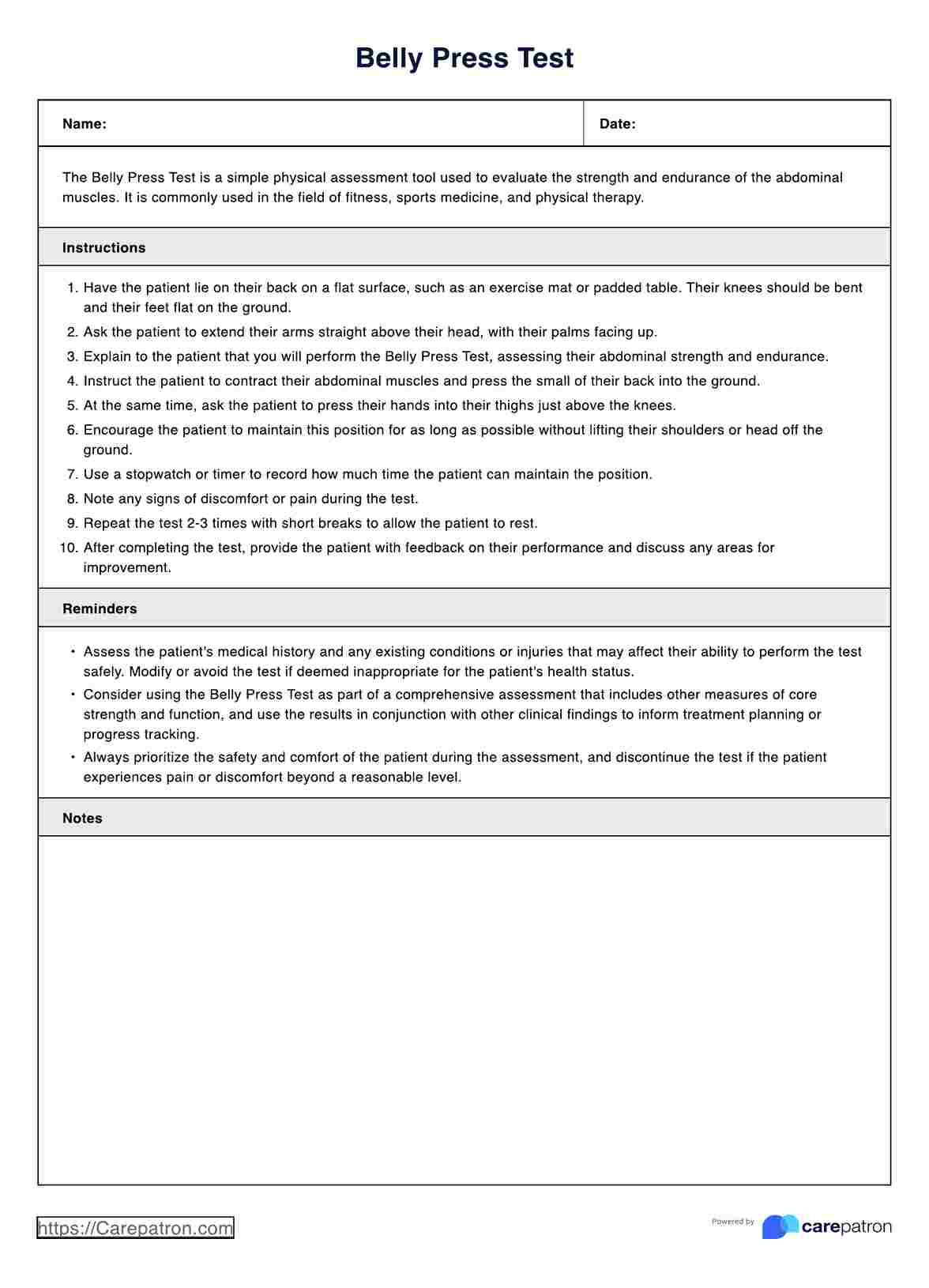To administer the test, have your patient lie down on a flat surface and place their hands behind their head. Ask them to press down firmly into the floor, using their feet for support if necessary. Time how long they can hold this position without lifting their head or shoulders off the floor.

Belly Press Test
Discover how a Belly Press Test works and why it's used to assess core strength and stability. Download our free PDF guide and example today.
Belly Press Test Template
Commonly asked questions
This assessment tool doesn't require a scoring system. Instead, the results are used to compare performance across multiple visits. If a patient can maintain their press for longer periods, this can indicate increased strength and stability.
The Belly Press Test is a simple, effective way to assess the abdominal muscles of your patients. This assessment tool offers reliable results and objective evidence of progress. Additionally, it can be used in various settings and requires no specialized equipment.
EHR and practice management software
Get started for free
*No credit card required
Free
$0/usd
Unlimited clients
Telehealth
1GB of storage
Client portal text
Automated billing and online payments











